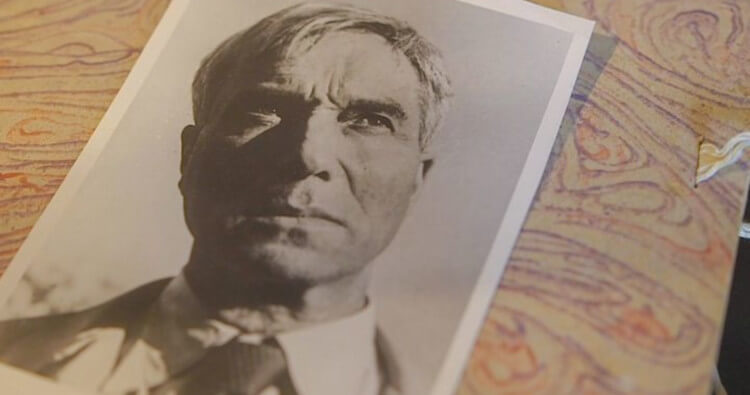State art censorship, occupation explored in films by Georgian directors at DOK Leipzig

Filmmaker Nino Kirtadze documents the subject of state censorship of literature in her work on Boris Pasternak's 'Doctor Zhivago'. Photo: DOK Leipzig.
Films by three Georgian women directors are set to screen at the upcoming DOK Leipzig festival, a major documentary event in Germany that starts next Monday, with Salome Jashi, Tako Robakidze and Nino Kirtadze all involved.
The festival, which has claimed a status of a leading cinema event of its kind for six decades and as "a meeting place for East and West", will have over 300 films featured in its sections and 24 prizes up for grabs.
Among filmmakers whose works have been included in various programmes will be the three professionals from Georgia, with the international programme involving an international premiere of I Invite You to My Execution by Kirtadze.
The French production looks at the Cold War years and state censorship of literature through the tumultuous events preceding and following the publication of Doctor Zhivago, a monumental work by author Boris Pasternak, in the 1950s.
Tako Robakidze produced her documentary following her photographic series on the 'borderisation' process as part of a Magnum Foundation fellowship:
Since he saw no prospect for his epochal work [...] to be published in the Soviet Union, [...] Pasternak smuggled several copies of his manuscript abroad. [The novel] was first published in 1957 in an Italian translation; its author was awarded the Nobel Prize in Literature in the following year – which had consequences" - Frederik Lang
Kirtadze worked on the feature throughout 2018 alongside a team of cinema professionals from France. The documentary will have three sceenings in Leipzig between October 30-November 3.
In two special screening sessions, audience of the festival will see Creeping Borders, Robakidze's work on the process of 'borderisation' - constant relocation of the administrative boundary between Georgia's occupied regions and the territory under the control of the country's government - and The Tower by Jashi, another look at the same post-conflict reality.
In the former, Robakidze - who also worked on cinematography of the film - follows the process of the shifting barbed wire line and resulting deprivation of civilians living adjacent to the de-facto boundary of their homes and land.
 A still from 'The Tower' by director Salome Jashi. Screenshot from the film.
A still from 'The Tower' by director Salome Jashi. Screenshot from the film.
[A] new wave of internally displaced people is sweeping the country. Moreover, the arrest of local residents for "illegal border crossing" by the Russian FSB has almost become a habit" - DOK Leipzig
The director and photographer documented the process and affected lives in her series produced while working as part of the 2017 Photography and Social Justice Fellowship of the prominent Magnum Foundation.
Aiming her camera lens at the same communities of those forcefully displaced by the process since the 2008 war between Russia and Georgia, Jashi captures families observing their former homes on the other side of the administrative line from a tower on the Georgian-controlled territory.
Created as part of 080808, a platform that brought together dramatic stories and experiences of people who lived through the war, The Tower previously screened at the goEast Festival of Central and Eastern European Film earlier this year.
The short films by Robakidze and Jashi will screen at DOK Leipzig on November 1, before the 62nd festival edition closes on November 3.
 Tweet
Tweet  Share
Share